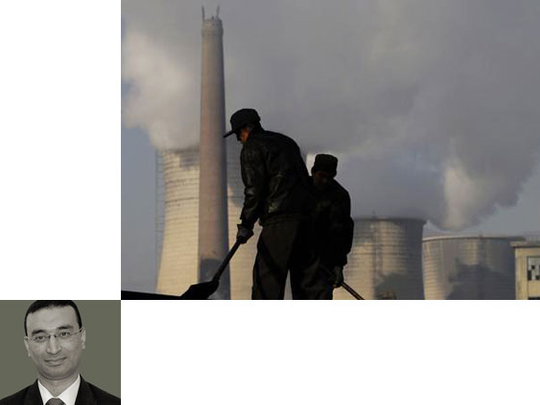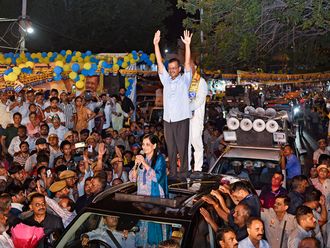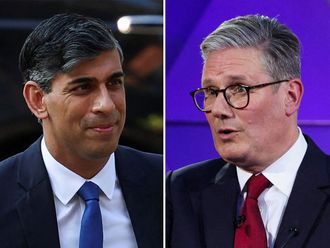
The last round of climate negotiations in Bonn last week covered a wide range of issues that will determine the future of humanity, development patterns and quality of life for decades to come. The outcome of the Bonn meeting was positive, but negotiations on the whole are still unpredictable. Political positions hinder progress, especially on issues such as the future of the Kyoto Protocol.
The international community is trying to create a new climate regime for the period after 2012, either by continuing with the Kyoto Protocol, which puts binding emissions caps on developed countries, or by creating a new agreement involving developing countries or at least the major emitters among them.
The talks covered issues like compliance through an international court of climate justice; global goals for finance, technology and adaptation; Nationally Appropriate Mitigation Measures (NAMAs), enhanced action on all elements of the Bali Action Plan; a second Kyoto Protocol commitment period; land use, land-use change and forestry (LULUCF), Measuring, Reporting and Verification (MRV) and so on.
What was disappointing is that India and Japan pushed hard to include the nuclear option under the Clean Development Mechanism (CDM). This was really shocking given the recent Fukushima nuclear disaster. If this rationale continues, countries like Russia and France will follow suit. This is merely a matter of business opportunity and does not take a responsible position.
One of the most difficult tasks for all delegates in Bonn was the issue of a second commitment period under the Kyoto Protocol. Most developed countries claimed that a new legally-binding framework should include all major emitters.
Industrialised nations
Developing nations are demanding an extension of Kyoto, which obliges almost 40 industrialised nations to cut greenhouse gas emissions by 5.2 per cent below 1990 levels by 2012.
It is worth mentioning that the world's two largest greenhouse gas emitters — China and the US — are not bound by the Kyoto Protocol. The US has never ratified Kyoto, arguing that it omitted 2012 goals for emerging economies and would cost US jobs.
Overall, expectations for the future of the Kyoto Protocol are low and some doubt if a second commitment period is feasible with only support from the European Union which accounts only around 11 per cent of the world's emissions of greenhouse gases.
In fact, the Kyoto Protocol is very important because it contains key rules to quantify and monitor efforts to reduce greenhouse gas emissions and various market-based mechanisms for mitigation. It will be a great loss to bury the Kyoto Protocol in Durban, South Africa, in December 2011. One way out is to have less binding targets for big emitters in the developing world or apply such binding targets on them after 2015, for instance. Using conditional incentives for big emitters from developing countries is another way to encourage them to get on board.
In fact, the world has no time to waste or no way out of the climate crisis unless there are a deeper cuts in greenhouse gas emissions. Recent disasters, which are getting more frequent, such as tsunamis (Japan and south East Asia) and the floods in China's Yangtze basin, are warning that the world should embark on an ambitious climate change deal.
Arab world
Under the Kyoto Protocol, the Arab world — whose member countries are classified as developing, or ‘Non-Annex 1' — does not have any commitments, making the current agreement one of the best and most developing country-friendly ever in history. Yet the Arab world has not been able to take advantage of its benefits. In Bonn, Egypt and Saudi Arabia played key roles especially on issues like financial mechanisms of the convention and funding for developing nations.
The Arab world should do its best to mitigate emissions and be prepared to enhance its actions in return for additional financial, technological and capacity-building support from developed countries. In addition, the Arab world should agree on a common Arab position at the next round of climate change talks in Durban.
In summary, there is no doubt that the Bonn negotiations have paved the way for progress in Durban. Given that the first commitment period will expire at the end of 2012, Durban is a key milestone for the Kyoto Protocol. However, it is expected that the international community will not be able to reach an ambitious deal on climate change in Durban this December. But governments can reach a compromise in the form of intermediate resolutions which are acceptable to all parties.
I believe that this is the most important treaty in human history. It will decide many issues linked to low carbon (green economy), renewables and nuclear and energy security, adaptations and finance. If the international community fails to reach a well-developed treaty in due time, the world will keep on heating up and man can expect anything then!
Dr Mohammad Abdel Raouf is an independent environmental researcher.


_resources1_16a3106e66e_small.jpg)





